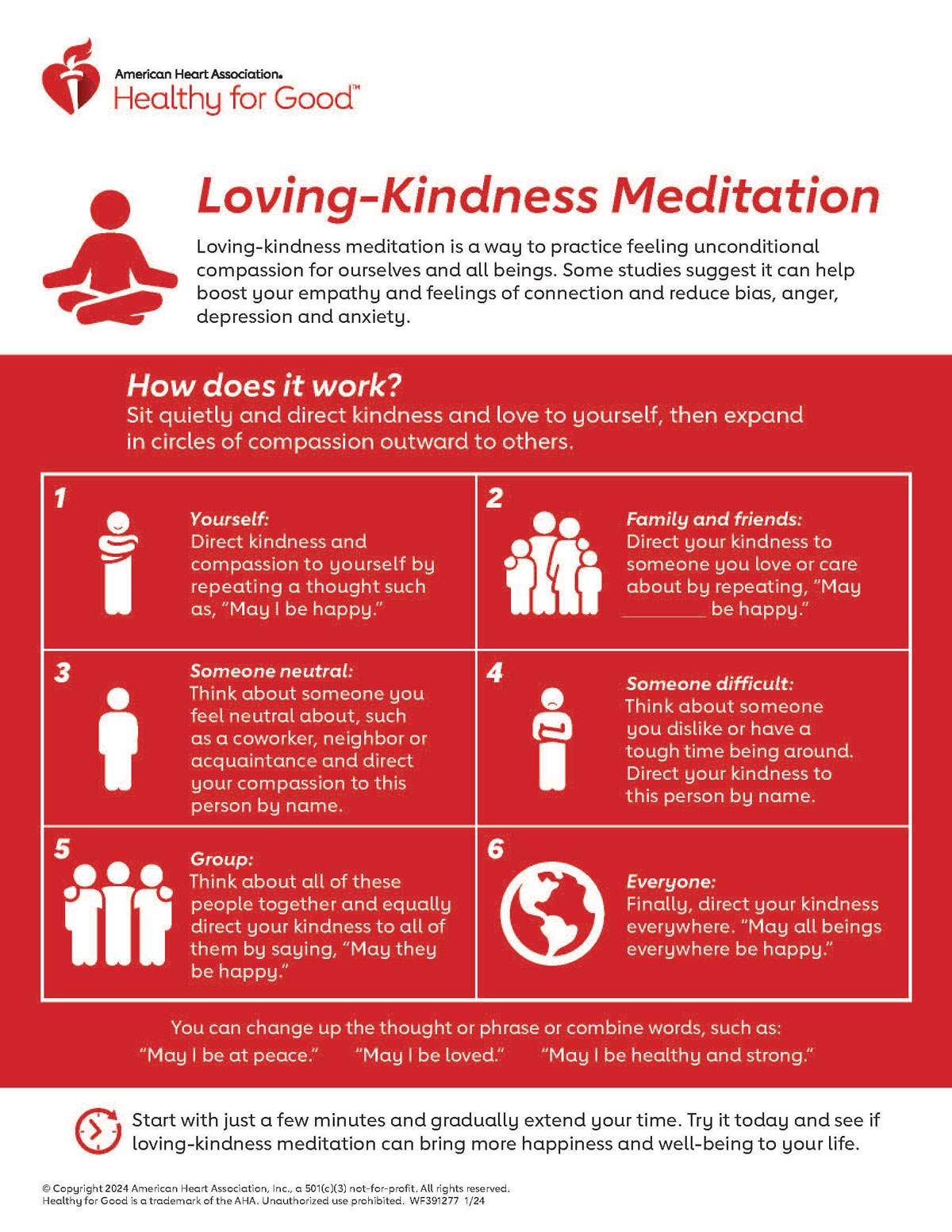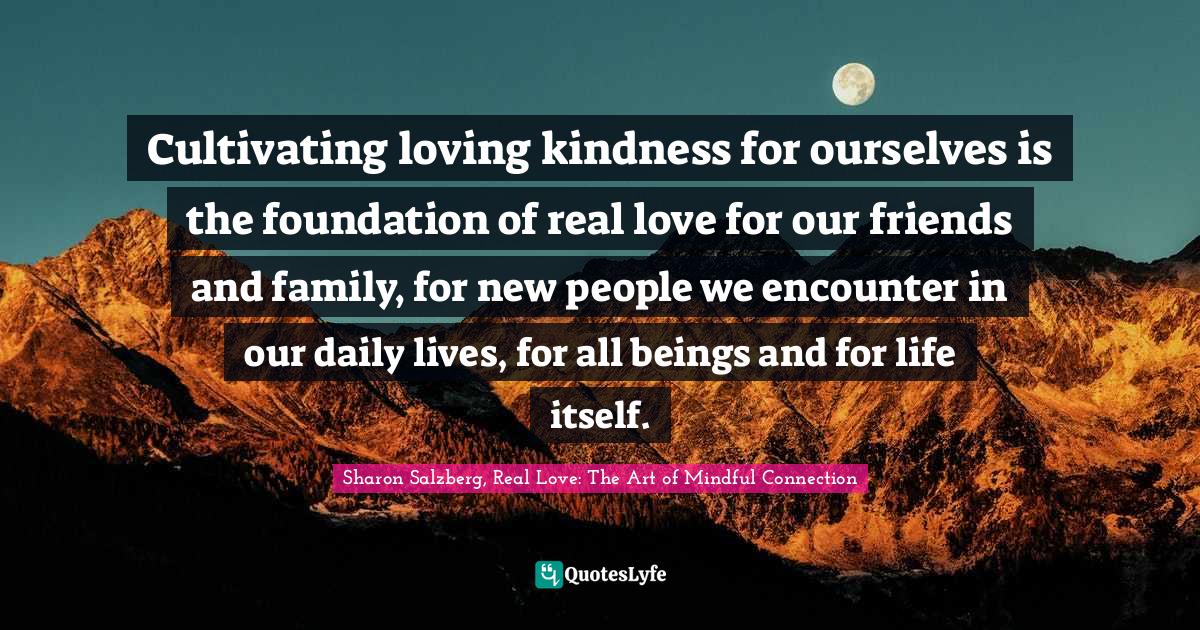In the last almost one and a half year of meditating, I kept hearing the phrase loving kindness over and over again. I have done the meditation many times, but have been very curious about this and it’s origins, so I decided to find out more.
So what is Loving Kindness? It comes from the word Maitri, a Sanskrit word which in Pali is equivakent to Metta and means benevolence, loving-kindness, friendliness, amity, good will and an active interest in others. The cultivation of benevolence is a popular form of Buddhist meditation and is a part of the four immeasurables in Brahmavihara or the divine abidings meditation. Some small sample studies on the potential of loving-kindness meditation approach on patients suggest potential benefits, however, peer reviews question the quality and sample size of these studies.
Today more than ever, we seem to be living in a world which is characterised by a us versus them mentality. Everywhere, xenophobia and racism seems to be at a peak and we seem to think those who are different than us, or those who disagree with us are not on the same page as us and so should be treated with disdain and be considered as the enemy. This in turn makes us dislike the others, wanting them to not have good lives and all the negative emotions that eventually will turn us into bitter human beings. And then because we dislike and are jelous of people so much, we spiral into lonliness, and this lonliness can happen even if you are surrounded by people. If you can’t engage people authentically, then you are lonely, there is no two ways about it.
That’s where the practice of Loving Kindness comes in where it about cultivating love as a strength, a muscle, a tool that challenges our tendency to see people, including ourselves as disconnected, statically and rigidly isolated from one another. Loving-kindness is about opening ourselves up to others with compassion and equanimity, which is a challenging exercise, requiring us to push back against assumptions, prejudices, and labels that most of us have internalised.
According to a study from 2008, mutual trust can catch on and spread between racial groups just as quickly as suspicion can. So just as quickly as we are conditioned to hate someone, we can easily learn to trust someone we perceive as the other.
One does not need to practice Buddhism to practice Loving Kindness and the meditation technique is fairly simple. The meditation can be used to boost well-being and reduce stress with those who regularly practice it able to increase their capacity for forgiveness, connection to others, self-acceptance, and more. Intially the technique feels very weird, but as with everything else we do, as we practice it more, we will get better at sending and receiving love and kindness both to ourselves and to others.
During the loving kindness meditation, you focus benevolent and loving energy toward yourself and others. There are many well-documented benefits of traditional meditation, but as with other techniques, this form of meditation takes practice. It can be difficult and sometimes leads to resistance since the average person is not used to this level of giving and receiving love. Some published studies have noted that this meditation technique may be useful in the management of social anxiety, marital conflict, anger, and coping with the strains of long-term caregiving while other research has suggested that the loving kindness meditation can enhance the activation of brain areas that are involved in emotional processing and empathy to boost a sense of positivity and reduce negativity.
While there are different ways to practice Loving Kindness, here’s what works for me. Sit in a comfortable position at a time when you are likely not to be disturbed. This will take as long as you need, so even a few minutes will do. Sit comfortably, close your eyes, relax your muscles and take a few deep breaths. Imagine yourself experiencing complete physical and emotional wellness and inner peace. Imagine feeling perfect love for yourself, thanking yourself for all that you are, knowing that you are just right, just as you are. Focus on this feeling of inner peace, and imagine that you are breathing out tension and breathing in feelings of love. Repeat three or four positive, reassuring phrases to yourself. Phrases like “May I be happy”, “May I be safe”, “May I be healthy, peaceful, and strong” or “May I give and receive appreciation today”. You can also use phrases that speak to you personally and are unique to yourself.
Once you have repeated your chosen phrases, bask in feelings of warmth and self-compassion for a few moments. If your attention drifts, gently redirect it back to these feelings of loving kindness. Let these feelings envelop you. You can choose to either stay with this focus for the duration of your meditation or begin to shift your focus to loved ones in your life. Begin with someone who you are very close to, such as a spouse, a child, a parent, or a best friend. Feel your gratitude and love for them. Stay with that feeling. You may want to repeat the reassuring phrases. Once you’ve held these feelings toward that person, bring other important people from your life into your awareness, one by one, and envision them with perfect wellness and inner peace. Then branch out to other friends, family members, neighbors, and acquaintances. Extend feelings of loving kindness to people around the globe and focus on a feeling of connection and compassion. You may even want to include those with whom you are in conflict to help reach a place of forgiveness or greater peace.
When you feel that your meditation is complete, open your eyes. Remember that you can revisit the wonderful feelings you generated throughout the day. Internalize how loving kindness meditation feels, and return to those feelings by shifting your focus and taking a few deep breaths.
To get the most out of your Loving Kindness meditation, when you start, use yourself as the sole subject during meditation. As you get more comfortable with the imagery and loving phrases, you can begin to add the visualization of others into your practice. Adding others into the meditation boosts feelings of forgiveness and helps you to let go of rumination for an increased sense of inner peace. And as you develop a regular practice of meditation, you may want to set a timer with a gentle alarm if you’re concerned about spending too much time in focus.
Any meditation will help with feelings of anxiety and make you more zen, but the Loving Kindness meditation, over time will alleviate feelings of resentment, generate forgiveness to yourself and others and allow you to be able to deal with people, specially those you are in conflict with.




